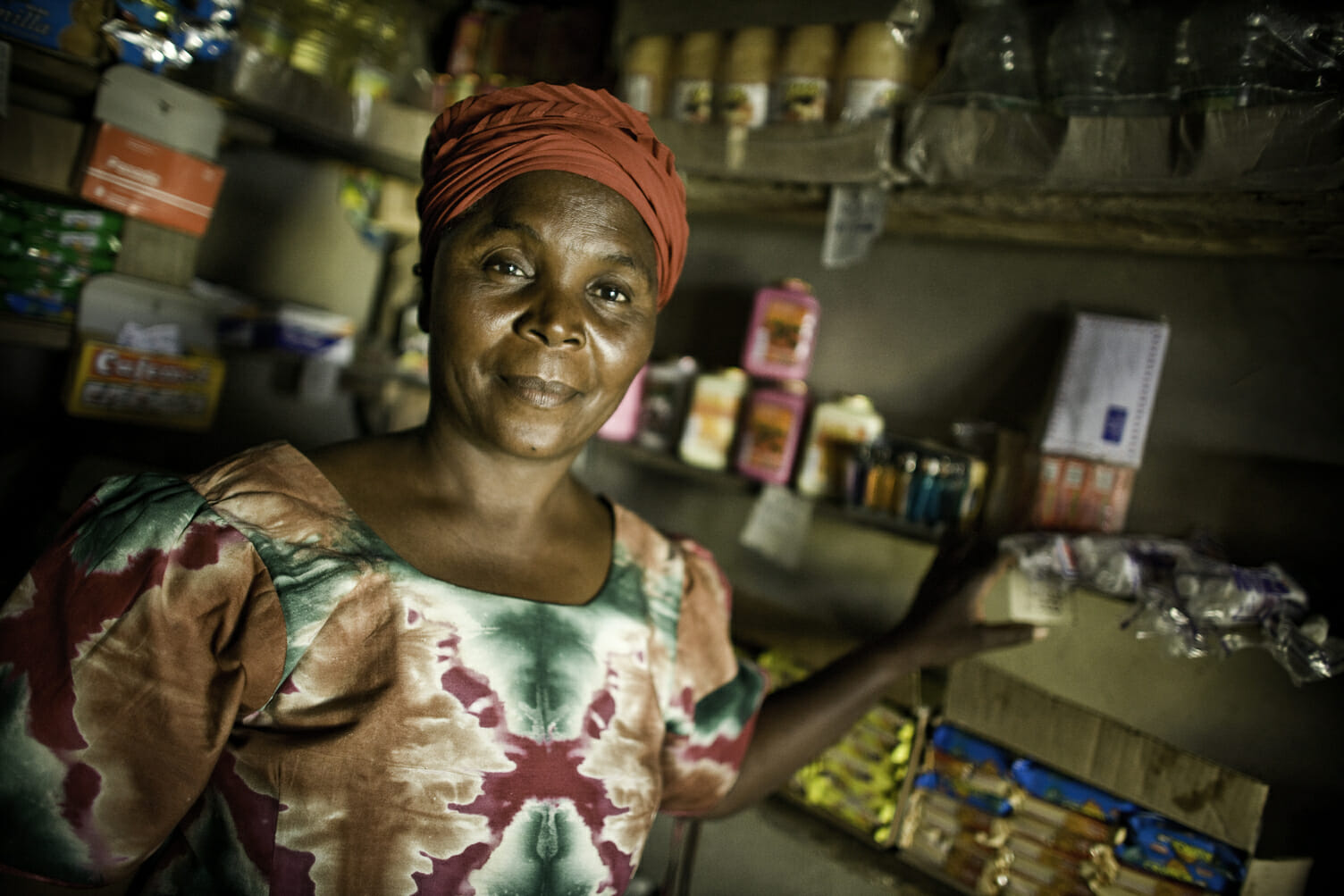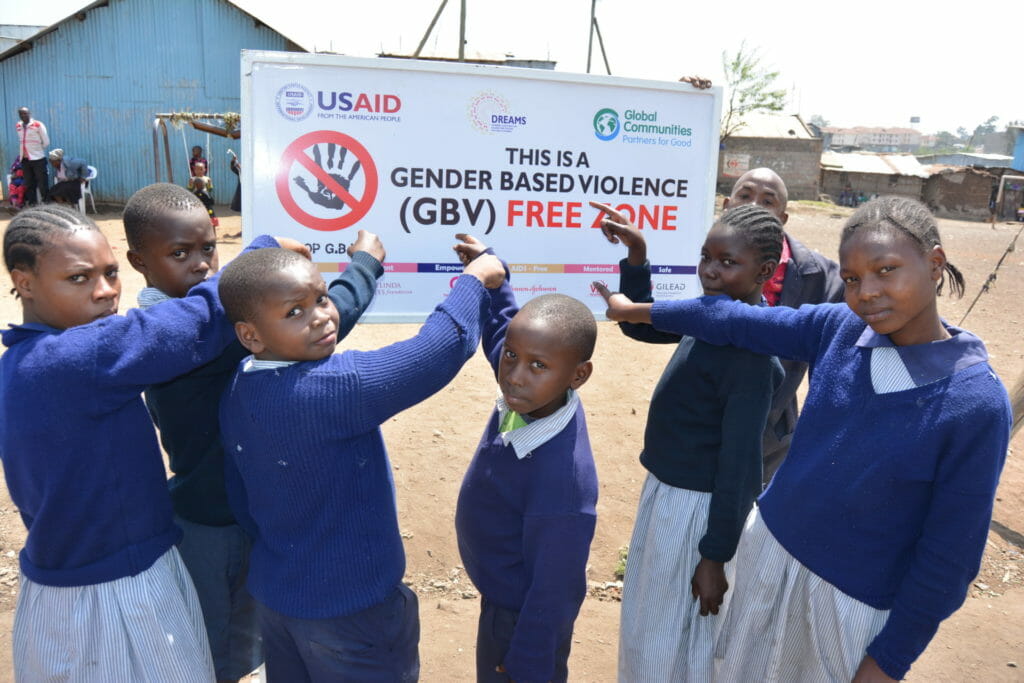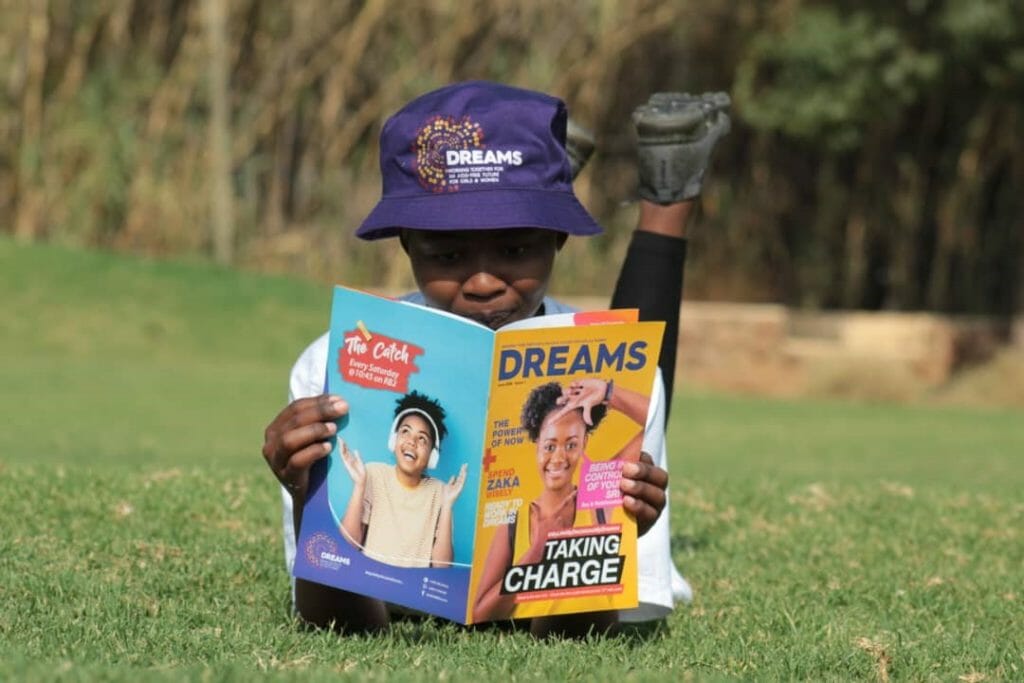Since 1996, Global Communities has built the capacity of civil society organizations, local government and other networks to tackle multi-sectoral challenges. Using a community-led and client-centered approach, we work with partners to address the health and socioeconomic needs of people living with HIV, vulnerable children, adolescents, caregivers and households. Throughout our programming, we work to strengthen community and primary health systems so that communities are prepared to prevent and respond to HIV and related health issues, co-morbidities and pandemics as they emerge, such as COVID-19.
Through women’s empowerment and livelihood programs, we are mobilizing communities to be resilient to shocks and socioeconomic vulnerabilities while also raising awareness about harmful gender and cultural norms. Global Communities has worked in close partnership with the Zambia Defense Force since 2003 to address the country’s challenges with HIV/AIDS and cervical cancer.
Zambia has one of the highest HIV/AIDS rates in the world — and in the military community, this rate is estimated to be twice the national rate — and the fourth-highest rate of cervical cancer in the world. Because people living with HIV are more susceptible to cervical cancer, Global Communities has taken particular action to provide integrated health programming in partnership with the military.
We also support local capacity building as part of our commitment to the U.S. Agency for International Development's Journey to Self-Reliance. Global Communities (formerly PCI) made the intentional decision to transition its operations in Zambia, once mature, to an organization that is governed and managed by Zambians.
We are proud to be partnering with the new local independent entity, Project Concern Zambia, in current and future programming to continue to strengthen their institutional capacity.
Catalyzing the Transformation of Zambia’s Agricultural Sector
From 2020-2023, Global Communities is working to assist 10,000 emerging farmers across Zambia with increasing their productivity, incomes and sustainable farming practices under a new program in partnership with the U.S. Agency for International Development (USAID), Corteva Agriscience and John Deere. The Emerging Farmers Partnership will transform Zambia’s largely subsistence agriculture sector through improved sustainable farming practices and the commercialization of emerging farmers. The program is increasing farmers’ capacity to plan and manage risk, adopt improved technologies and practices and gain productive assets. This in turn leads to community benefits including increased access to nutritional food sources, a stronger local economy and sustainable market systems that continue to support the community after program completion. The program will leverage more than $37 million in loans for inputs and equipment, resulting in over 50,000 hectares of crops planted using climate-adaptive seeds and other sustainable technologies.
Strengthening Local Capacity to Deliver Sustainable, High Quality Health Services for Vulnerable Children & Adolescents
Global Communities is working with the local organization, Project Concern Zambia, to mitigate the impact of HIV and improve the health and well-being of vulnerable children and adolescents through the delivery of high-impact, evidence-informed and age-appropriate interventions. The Empowered Youth Program is being implemented from 2020-2025 with Global Communities as the institutional capacity strengthening partner, and we are working with local organizations to improve the social and health outcomes of vulnerable households in high HIV burden districts across the Central and Southern provinces of Zambia. Global Communities is not only strengthening Project Concern Zambia’s institutional capacity and driving transformative change and growth, but we are also supporting them to strengthen the capacity of other local partners toward greater organizational effectiveness, improved performance and sustained results and impact.
Bringing HIV Testing & Cervical Cancer Screening Directly to Women
Since 2011, Global Communities has worked with the Zambia Defense Force to provide screening and treatment for HIV and cervical cancer. In 2019, Global Communities (then operating as PCI) launched a new program with the support of the U.S. President’s Emergency Plan for AIDS Relief (PEPFAR) and the U.S. Department of Defense HIV/AIDS Prevention Program (DHAPP) to bring health care services directly to women, wherever they are. Women living with HIV are at least five times more likely to develop cervical cancer than their HIV-negative peers, and they have twice the risk for death from invasive cervical cancer within three years than women who do not have HIV, making integrated screening and treatment critical for saving lives. We continue to partner with the Zambia Defense Force to provide integrated HIV/cervical cancer testing and screening in mobile and static health sites, ensuring that women who test positive for HIV are linked to treatment services and also screened for cervical cancer. Those who have precancerous lesions are provided with or linked to treatment, improving survival rates for both diseases.
35,000+
women in Zambia who have received lifesaving screening and/or treatment for HIV and cervical cancer
71,000
adults and 15,000 adolescents, as well as female sex workers in remote military operation areas, reached with HIV prevention behavioral interventions
Recent Programs
Preventing HIV Transmission in Military Communities
From 2013-2019, Global Communities (then operating as PCI) worked continuously with the Zambia Defense Force to develop and implement HIV prevention strategies that addressed the ethos, cultural, gender and socioeconomic factors contributing to the spread of HIV/AIDS within the military. Funded by the U.S. Department of Defense HIV/AIDS Prevention Program (DHAPP), Global Communities helped implement behavioral interventions by working with over 1,000 military peer educators, 800 youth peer educators and 100 local drama groups. Through one-on-one and small group discussions, peer educators reached more than 71,000 adults and 15,000 adolescents, as well as female sex workers in remote military operation areas. All participants received health education and generated demand for HIV testing, distribution of test kits, condoms and partner notification services. Additionally, 60 percent of the clients reached were linked to biomedical services. Global Communities also helped the Zambia Defense Force reduce the risk of HIV transmission through its laboratory capacity strengthening program, which helps guide treatment choices to prevent HIV infection. Because women living with HIV are particularly vulnerable to cervical cancer due to a compromised immune system, Global Communities partnered with the Zambia Defense Force to integrate cervical cancer “screen-and-treat” services into routine HIV treatment services, which has been carried forward into current programming. In 2018, Global Communities supported the Zambia Ministry of Health to develop a national automated cervical cancer information system “SmartCerv,” which has enabled national reporting of cervical cancer control data and related HIV/AIDS data. (closed in 2019)
Our Work in Zambia
Expanding Economic Opportunity
Supporting Small and Medium-Sized Businesses and Community Savings and Lending Groups
Gender Equality & Social Inclusion
Lifting Marginalized Voices and Investing in Women as Leaders and Men as Allies
Health
Combating Disease, Improving Nutrition, and Ensuring Healthy Mothers, Children and Adolescents
Economic Opportunity
Advancing Job Training and Market Linkages for Sustainable Livelihoods
Sustainable Development
Standing with Communities as They Shape Their Own Future
Resources
Briefs & Case Studies
CVCFG: ASGM Logistics in Eastern DRC Learning Brief
USAID’s Commercially Viable Conflict-Free Gold (CVCFG) Project, known locally as “Zahabu Safi” is a five-year project, implemented in the Democratic Republic of the Congo (DRC) by Global Communities and Levin Sources. The project is designed to build on recent successes achieved by donor-funded initiatives to export responsibly sourced gold to jewelry buyers in North America…
Briefs & Case Studies
Program Brief: USDA Chakula Chetu Local and Regional Food Aid Procurement Program in Tanzania
In 2017, USDA funded a Local and Regional Food Aid Procurement (LRP) program, called Chakula Chetu, meaning Our Food in Swahili. Chakula Chetu complements Project Concern International (PCI), a Global Communities Partner’s McGovern-Dole program in Tanzania, FFE III. Emphasizing local capacity strengthening to promote long-term ownership and sustainability, Chakula Chetu delivers a cost-effective and timely…
Research & Publications
An Infant Carrier Intervention and Breastfeeding Duration: A Randomized Controlled Trial
Emily E. Little, PhD, CLEC, Camille C. Cioffi, PhD, Lisa Bain, MPH, Cristine H. Legare, PhD, Jennifer Hahn-Holbrook, PhD OBJECTIVES: Parent-infant skin-to-skin contact immediately after birth increases initiation and abstract duration of bodyfeeding. We hypothesized that providing ergonomic carriers to parents during pregnancy would increase the likelihood of breastfeeding and expressed human milk feeding through…
Briefs & Case Studies
Improving Key Water, Sanitation and Hygiene Practices in Ghana Through A Behavior-Led Approach
Years of effort and focus by the Government of Ghana and its partners have yielded significant improvements in the country’s child morbidity and mortality rates. Still, every year, at least 4,000 Ghanaian children die from diarrhea, and 23% experience chronic malnutrition linked to poor water and sanitation.(1) To help improve these numbers, USAID funded the…
Toolkits & Manuals
Guía Metológica para Análisis de Rumores sobre COVID-19
El abordaje metodológico y analítico sobre rumores constituye la base fundamental que proporcionará la información y resultados necesarios para la erradicación efectiva de rumores prevalentes sobre COVID-19. La presente guía describe los pasos metodológicos a seguir, tanto para el análisis de datos como para la formulación de los mensajes antirumores.
NEWS
Latest stories from the blog

US for more trade investment with Zambia
By Kabanda Chulu From Business News, Zambia Daily Mail, March 15 2021 The United States (US) government is committed to promoting increased trade and investment …
Read More
Emerging Farmers Partnership GDA
This article was originally published by USAID. Zambia’s development holds much promise but faces much peril. Urban economic growth has boomed, however rural areas have …
Read More


